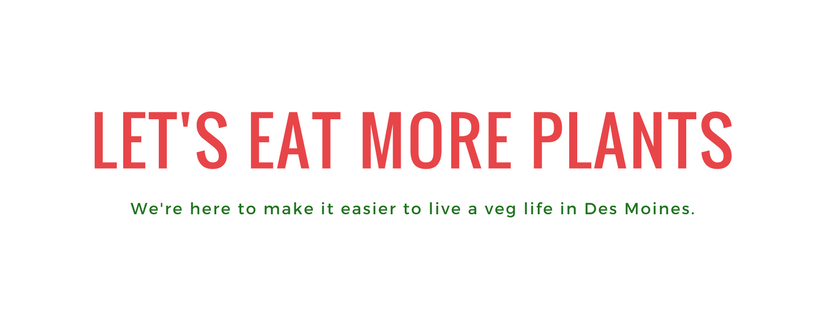Top Tips – Advantages to a Veg Lifestyle – Common Definitions – Other resources

Top tips from some of our Facebook followers!
- Learn which meat substitutes you like best. This means trying both fake meats as well as beans, lentils, falafel, tofu, and tempeh. Once you find which substitutes you like best you can start experimenting with familiar dishes that you used to make using the newly found substitutes.
- Don’t be shy about asking staff at restaurants about the ingredients in their food. It’s their job to be knowledgeable about the food they are serving. Feel free to call in advance if you’re trying someplace new. Some places can make vegan dishes that aren’t on the menu, it never hurts to ask. See our list of veg friendly restaurants here!
- Join vegan groups online to help answer your questions and build community. You are not alone. Find some groups on our local resources page.
- Start by learning 1 or 2 easy vegan recipes that you like. Once you’ve mastered those, move on to trying a few new recipes that interest you. It’s important to feel like you have food that is easy to prepare and yummy at the beginning. Find tons of great cookbooks here!
- It’s all about the seasonings! If there is something you feel like you’re missing think about what spices give it that flavor and search for a way to use those in a new and exciting way.
- Use apps to make your life easier. Check out our apps page for some tips.
Advantages to a Veg Lifestyle
- It’s Good For The Environment. Staying away from all animal products is one of the most effective acts we can do to lower our carbon footprint!
- It’s Good For Your Health. More and more people are now turning to a vegan-plate for health benefits. With loads of healthy proteins, carbohydrates, vitamins, minerals, and fiber — all with low saturated fat — we are finding common health issues like diabetes and obesity be reversed. Pair that with feeling a sense of rejuvenation and you’re set up with feeling amazing!
- It’s Good For Animals. Seeing all animals as the same and preventing exploitation of any species has a special place in a veg-lifestyle.
- It’s Good For The World’s People. By putting an emphasis on giving the food grown throughout the world to people, we help with world hunger.
Vegetarian? Vegan? Pescatarian? Learn some of the most common definitions below
- Vegan: Does not consume meat, dairy, eggs, honey, or any ingredients derived from animals. Also abstains from animal based products (leather, wool) and all products tested on animals.
- Vegetarian: No meat. Will consume dairy and eggs.
- Lacto-Vegetarian: No meat. Will consume dairy: cheese, milk, yogurt, etc.
- Lacto-ovo / Ovo-lacto Vegetarian: No meat. Will consume dairy and eggs.
- Flexitarian: Flexible in one’s vegetarian or vegan lifestyle. A flexitarian might make only vegetarian dishes at home, but eat dishes including meat at the home of family or friends.
- Pescatarian: Will consume fish but no other meat.
- Raw Foodist: Food, usually vegan, which is not heated above 115°F and has not been frozen. Food may be warmed slightly or raw, but never cooked.
Other resources for transitioning
- 100 Quick Vegan Diet Tips, from The Friendly Fig (blog post)
- How to go vegan, from The Vegan Society (blog post)
- Top 10 Tips For a First-Time Vegan, from Serious Eats (blog post)
- BEGINNER’S GUIDE TO VEGANISM » how to go vegan, from Pick Up Limes (video)
- Tips to go Vegan in a NON-Vegan Household, from Caitlin Shoemaker (video)
- 7 Vegan Hacks To Make Your Life Easier!, from Kristen Leo (video)
